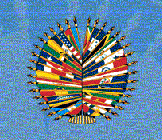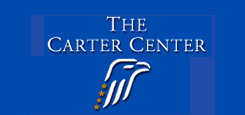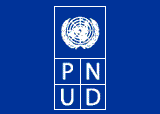PUBLIC AI Index:
AMR 53/012/2003
UA 260/03 Death Threat / fear for safety
03 September 2003
VENEZUELA Linmai Basave (m), human rights defender
Yelitza Moreno (f)
Her son (m), one and a half years old
killed: Joe Luis Castillo González (m), human
rights defender
Amnesty International is deeply concerned for the
safety of Linmai Basave, a staff member from the
Oficina de Acción Social de Vicariato Apostólico
de Machiques, Office of Social Action of the
Episcopal Vicariate in Machiques. There are also
serious concerns for Yelitza Moreno and her baby
son, following the killing of her husband, Joe
Luis Castillo González on 27 August.
On the evening of 27 August, Joe Luis Castillo
González, until recently the coordinator of the
Office of Social Action of the Episcopal Vicariate,
was shot nine times by two unidentified
individuals riding a motorbike in the town of
Machiques in the North Western frontier state of
Zulia. At the time, he was driving home with his
wife, Yelitza Moreno and their baby son, who are
both in serious, but stable conditions in
hospital.
Five days after the assassination, on 1 September,
the Office of the Episcopal Vicariate received an
anonymous telephone call in which the caller asked
to speak to Linmai Basave, the refugee project
coordinator. The administrator was told to tell
him "que se cuidara porque no iba a quedar aquí",
(he should watch out as it's not stopping here),
apparently in reference to the killing of Joe Luis
Castillo González.
The Ministerio Publico, Public Prosecutor's Office
has assigned a fiscal auxiliar, an assistant
prosecutor to the case, despite requests that a
fiscal especial, special prosecutor, be assigned,
due to the severity of the case. The Office of the
Episcopal Vicariate and other Venezuelan human
rights organisations have questioned the
effectiveness of the investigations carried out
thus far. At present, Yelitza Moreno and her son
are receiving police protection.
BACKGROUND INFORMATION
Joe Luis Castillo González carried out a United
Nations High Commissioner for Refugees (UNHCR)
programme in Machiques de Perijá, in the North
Western frontier state of Zulia, assisting
Colombian refugees who had fled the escalating
violence in Colombia. Reports of Colombian
paramilitary and armed opposition groups operating
inside Venezuela's border have heightened tension
in the area. In recent years, large scale army
backed paramilitary operations in the north-eastern
regions of Colombia have resulted in the
displacement of tens of thousands of civilians,
many of whom have fled to Venezuela. In this
context, human rights defenders working with
displaced communities have frequently been accused
and threatened by the Colombian military and
paramilitaries of being guerrilla collaborators.
http://web.amnesty.org/library/Index/ENGAMR530122003?open&of=ENG-VEN


